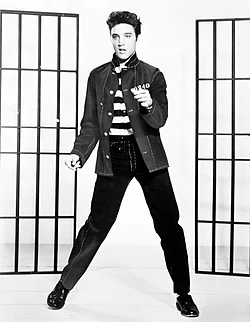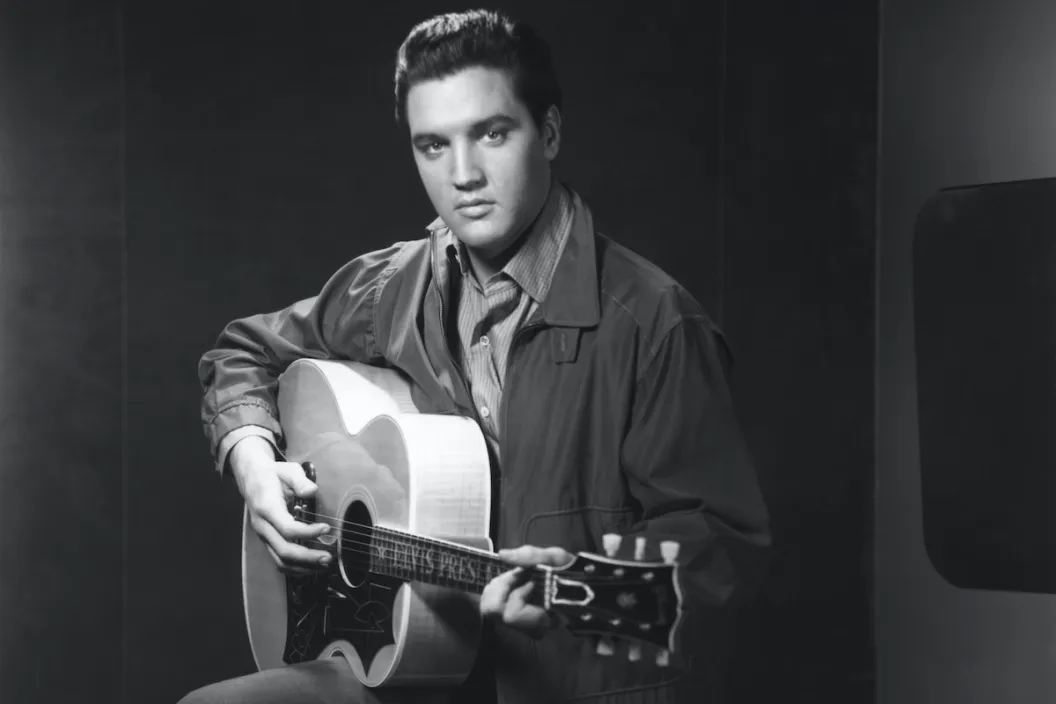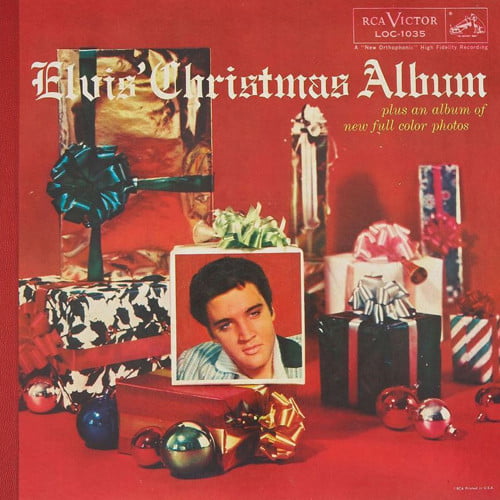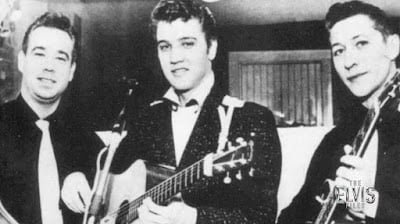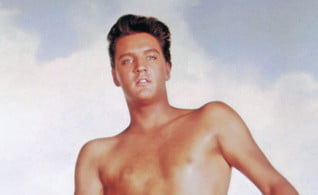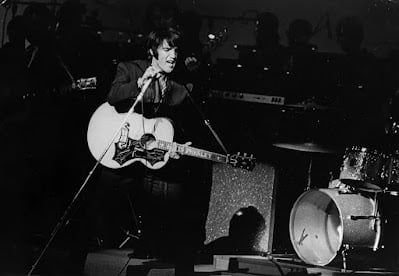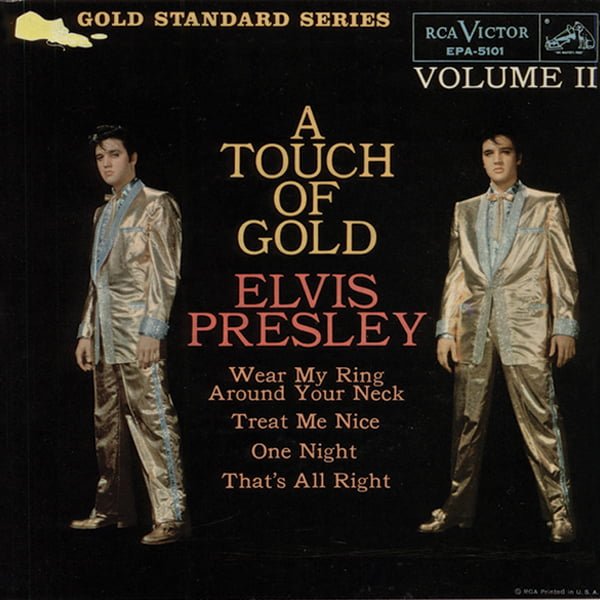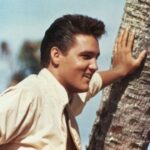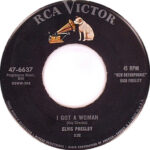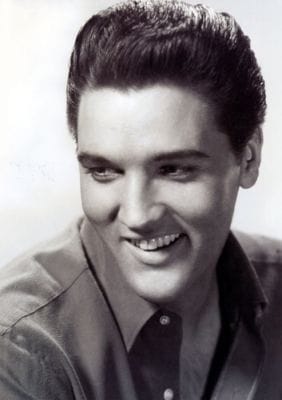
WILD IN THE COUNTRY
– Elvis Presley’s Last Dramatic Role –
(Part 6)
By Mariusz Ogieglo
Songs for Presley’s films almost always followed the same pattern. Composers and lyricists were sent scripts with a clearly marked place for a song (and sometimes even with a suggested title) and then asked to fill them with their own suggestions. As a result, after a few weeks – and sometimes even sooner – the publisher responsible for Elvis’s music (and acquiring material for his recording sessions) and ultimately also Presley himself, received dozens, sometimes even hundreds of demo CDs with very different recordings in terms of music, but often with titles that sounded almost identical. Elvis himself usually decided which of them ended up in the film.
However, it did happen, as may be suggested by a letter from Freddie Bienstock * to Ted Cain of 20th Century Fox, revealed several years ago, that some songs from the soundtrack were consulted, for example, with people from the production of a given film.
In the aforementioned correspondence, dated November 1, 1960, we read: “Dear Ted, I am sending you one demo CD and two sheets of sheet music. These are the materials that came in for WILD IN THE COUNTRY. I would be grateful if you could present them to Mr. Wald (producer Jerry Wald, author’s note) and let me know how he reacts to them .”
Below the quoted text, Bienstock included a list of ten pieces. Quite interesting when you look at it today, more than half a century after it was written.
In addition to the previously described ballad “In My Way,” the list includes, for example, a song never used in a film called “Jennie Jenkins.” Another offering by Fred Wise and Ben Weisman, this time written in collaboration with Kathleen G. “Kay” Twomey.
The aforementioned list was definitely dominated by the composition “Wild In The Country”. There are six songs with this title listed there!
Title-track submissions included compositions by Sid Tepper and Roy C. Bennett, Dick Manning (one of the co-writers of “Hawaiian Weeding Song”), Fred Wise, Kathleen G. “Kay” Twomey and Norman Blagman, and Hugo Perreti, George David Weiss and Luigi Creatore (the same people who, just a few months later, provided Elvis with one of his timeless hits, “Can’t Help Falling In Love”).
Ultimately, however, of all the songs submitted, the one approved for the opening credits of the new 20th Century Fox production was a country-style ballad by Fred Wise and Ben Weisman. One of two of the same title submitted to Elvis by the above-mentioned writing and composing team.
The entire band present in the studio, as well as the vocalists from The Jordanaires, were once again used for its recording.
Recounting the early days of the song in his book Elvis Close Up, Presley biographer Collin Escott noted, ”
Going into the title track, ‘Wild In The Country,’ [Elvis, author’s note] tried to get the high notes in the bridge in the style of Mario Lanza. He quickly changed his mind and decided on a simpler approach .”
After an unsuccessful, yet very spectacular, first attempt, in which Elvis’ voice soared to impressively high registers, the subsequent takes were played in a completely different – ??much gentler – arrangement.
In total, “Wild In The Country” was repeated as many as nineteen times (!) before a satisfactory result was achieved. And although most of these attempts fell apart after a few or a dozen first bars, those that were played in their entirety were good enough to be released on the album. However, the way Elvis worked on the title song proved once again “what a professional he was “. Although most of the recorded material sounded truly amazing (and the eleventh, thirteenth, fourteenth or sixteenth takes could have long since been described as master versions), he was still, as Piers Beagley from the Elvis Information Network portal pointed out, “looking for something extra “.
It took Elvis much less time to get a satisfactory version of “Forget Me Never,” yet another Fred Wise/Ben Weisman ballad (and the last song recorded that night). Unlike “Wild In The Country,” recorded just moments earlier, this song was recorded on the third take (like “Lonely Man,” it was not used in the finished film).
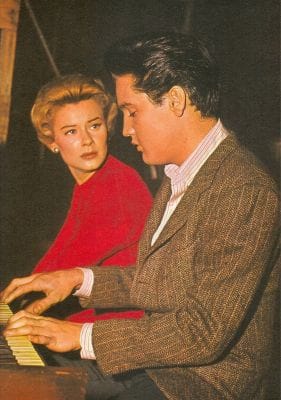
The first phase of work on the soundtrack was completed at about 2:30 a.m. Elvis returned to the studio at 7000 Santa Monica Boulevard the next day, a few minutes after nine in the morning.
The booklet accompanying the FTD CD “Wild In The Country” (published in 2008) contains an interesting piece of text revealing the background behind the inclusion of several Elvis songs in the script of “Wild In The Country.” “When 20th Century Fox boss Spyros Skouras discovered too late that the studio had given Elvis the lead role in the film without any songs, he immediately ordered several songs to be written and incorporated into the dramatic story ,” we read in the aforementioned fragment. “Elvis, along with producer Wald and director Dunne, tried to oppose this. Their protests proved unsuccessful. Dunne even wanted to leave in protest, but Wald once again convinced him to stay. Together they agreed to include and direct the songs in such a way that they could be cut after filming was completed .”
Without a doubt, the thing that draws the most attention in the article quoted above is, above all, the attitude of Elvis himself, who has made it clear more than once that he takes acting and his appearances in front of the camera very seriously, and that attempts by film producers to force him to sing songs in some scenes put him in, to put it mildly, a very uncomfortable situation.
Just like it happened with the song “I Slipped, I Stumbled, I Fell” written by Fred Wise and Ben Weisman.
The song, the only one recorded on November 8, was not only nothing like the atmospheric ballads recorded the day before. It was a light, catchy, rhythmic composition, for which all the musicians present in the studio were once again engaged: guitarists Scotty Moore and Hilmer J. ‘Tiny’ Timbrell, bassist Michael ‘Myer’ Rubin, drummer DJ Fontana and keyboardist Dudley Brooks ** , as well as members of the vocal group The Jordanaires.
Along with the title track and “Lonely Man,” “I Slipped, I Stumbled, I Fell” was also (and perhaps primarily) a potential candidate for Presley’s next single. Colonel Parker even saw it on the back of the ballad “Wild In The Country” *** .
In less than three hours, two slightly different master versions were recorded on tape. One for the film (recorded in a higher key after thirteen takes) and another for the single (recorded in a lower key after a further five takes. “Is this really the better key? ” Elvis would ask after completing the thirteenth take).
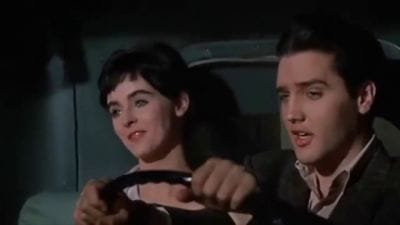
And while one might get the impression that the publishers had an idea for this recording from the very beginning, the people involved in the production of “Wild In The Country” did not necessarily have that.
The song was placed in a banal and completely unscripted scene, in which Elvis’ Gleen Tyler is traveling in a car with Betty Lee Parsons, played by Millie Perkins. “I remember shooting one scene ,” the actress said in a 1990 interview. “We were sitting in a truck that we were supposed to be driving home from a dance or going to a dance, something like that. The script said that (Elvis, author’s note) was supposed to turn on the radio and start singing. And to me, it was some kind of nonsense. I was very young at the time and I thought, ‘My sisters are going to tease me about this. This is so embarrassing and distasteful.’ You know, I was a snob too. But, and this is the nicest thing, during rehearsals, when the director finally left, Elvis looked at me and said, ‘This is so embarrassing. In normal life, no one would do this. Why are they making me do this?’ We stood there and the only thing we wanted to do was throw up .”
Much more natural and credible was the scene where Elvis and Hope Lange sang an acapella duet of “Husky Dusky Day.” However, this song was recorded outside the recording studio. It was probably created at the 20th Century Fox film studio.
The soundtrack for “Wild In The Country” was completed just before noon (around a quarter to midnight, according to studio records).
- Freddie Bienstock was a music publisher responsible for, among other things, acquiring and selecting songs for Elvis Presley’s early recording sessions
- Accordionist Jimmie Haskell was also brought back for the November 8 session, but the musician is not heard on this recording. The session notes also list Elvis Presley as one of the guitarists.
- Ultimately, however, it was replaced by the bluesy “I Feel So Bad” recorded on March 12, 1961. The song was placed on side A, with a ballad promoting Presley’s new film, “Wild In The Country,” on the reverse. “I Slipped, I Stumbled, I Fell” was finally placed on the longplay “Something For Everybody” from May 1961.
Information provided by Mariusz Ogieglo, EP Promised Land (Poland) http://www.elvispromisedland.pl/
If you want to visit more articles about the life of Elvis Presley, enter the following Elvis Radio 24h link: https://elvisradio24h.com/tag/articles Thanks TCB
We remind you that you can also listen to Elvis Radio 24 hours on your mobile phone by downloading our free applications for Android in the Play Store https://play.google.com/store/apps/details?id=com.icreo.elvisradio24h1, and for iPhone in your Apple Store https://apps.apple.com/app/elvis-radio-24h/id6444257119. Thank you very much!!..
